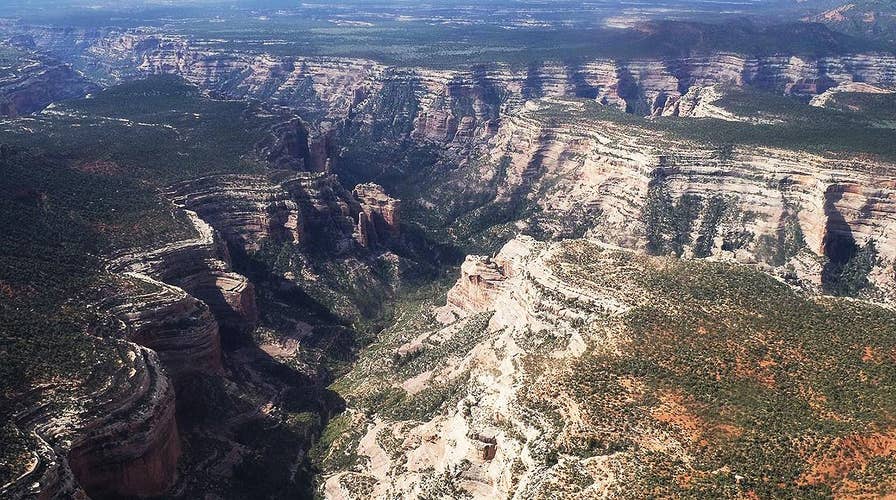Trump expected to shrink size of national monuments in Utah
Dan Springer reports on the debate over the expected land cuts.
President Trump’s decision to reduce the size of the Bears Ears and Staircase-Escalante National Monuments in Utah, announced Monday on his visit to the state, is a good one and an example of his policies that will benefit every American who enjoys national parks and monuments.
We should all thank the president for his administration’s efforts to look at the facts, listen to the people, and act to roll back restrictive and unnecessary national monument designations that provide few advantages to the American people.
While such designations may sound good on the surface, in reality they have strained land management budgets and limited public access to beautiful places.
The Trump administration has been on the ground listening to those who bear the burden of these decisions – unlike the Clinton and Obama administrations, which showed little interest in talking to local people before locking up millions of acres of land around them.
The Trump administration has seen firsthand what I saw when I represented some of these areas in Congress – that the consequences of locking down the West have been severe.
Overly expansive monument designations – like the two multimillion-acre monuments in Utah – could have been spent on existing park treasures.
I applaud the president for having the courtesy to do what his predecessors never did – visiting Utah personally to deliver the news that will positively impact those who love and care for these lands. His attention is a far cry from President Clinton making his Grand Staircase-Escalante Monument announcement from another state and President Obama issuing a press release with the wrong photo of Bears Ears.
The notion that our only option for managing public land is a restrictive monument designation is false. In truth, we can build bathrooms and fire pits, and accommodate hunting, fishing, grazing, and permit accessibility without destroying the land. In places where restrictive conservation rules are less justified, we can even authorize responsible resource extraction.
Each time the federal government levies new land designations, that new designation and management plan competes with existing parks and monuments for funding.
The National Park Service suffers from a $12 billion maintenance backlog – meaning crumbling buildings, roads, and bridges cannot be repaired or replaced. Overly expansive monument designations – like the two multimillion-acre monuments in Utah – could have been spent on existing park treasures.
In the case of Bears Ears National Monument, all of that land was already federal land mostly managed for conservation use. With President Obama’s monument designation, the maintenance fell to the already-strapped National Park Service. Many of these lands were once managed successfully by other agencies – like the Bureau of Land Management and U.S. Forest Service – and can be again.
But freeing up more money for national parks isn’t the only advantage of Monday’s decision. Access to these places will be expanded, not restricted, as required in large-scale national monuments.
By lifting restrictions on motorized access, President Trump makes these lands available to more than just the able-bodied. With expanded access, the elderly, disabled and even wounded veterans can utilize bikes or off-highway vehicles to access spectacular places.
Furthermore, those who wish to use the land for other purposes – such as hunting, fishing, camping, and outdoor recreation – will now also have access.
For Utah Native Americans, this improved access is important. For centuries, they have used the land around the Bears Ears National Monument to hunt, gather, and worship. Many would come on foot while others would utilize off-highway vehicles to collect firewood, gather medicinal herbs or meet in specific locations for religious ceremonies.
The federal government could preclude these uses under a restrictive monument designation – as it has in Arizona’s Canyon de Chelly, Wupatki and even Utah's Natural Bridges.
Monument designations – particularly the Grand Staircase-Escalante National Monument – have been routinely abused in an effort to lock down resource-rich areas that do not meet objective criteria for preservation.
By unlocking these otherwise unremarkable areas, President Trump enables high-paying resource extraction jobs to return to rural communities – a process that not only helps local economic development, but reduces U.S. dependence on foreign imports.
Protecting our most beautiful places is important. But we don’t have to lock people out to do it. We don’t have to put further strain on federal land management budgets. We certainly don’t need to decimate rural economies. President Trump has done the right thing. All of us will be the beneficiaries of this decision.









































